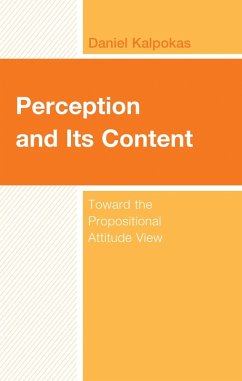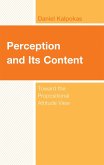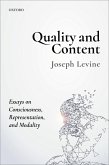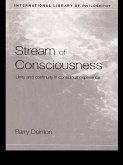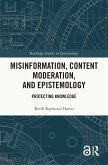What is perception? What is, if any, its content? What is the contribution of perception to knowledge? Perception and Its Content: Toward the Propositional Attitude View argues that perception has conceptual, propositional, and world-dependent content. After criticizing those theories of experience that conceive it as contentless (the causal-linkage approach and naïve realism), the book examines the nature of perceptual content. Daniel Kalpokas critically scrutinizes different varieties of non-conceptualism and claims that the content of experience is partly conceptual. Perception and Its Content defends the propositional-attitude view, according to which perceptual content is propositional in nature, and explores the world-dependent character of such content. Kalpokas holds that the content of experience is composed of concepts and the presented objects, such as they appear from the subject's point of view and determined environmental conditions. According to this view, perception provides non-inferential knowledge of the truth-makers of our judgments and beliefs. Furthermore, and importantly, that view sheds light on how the mind relates to the world.
Bitte wählen Sie Ihr Anliegen aus.
Rechnungen
Retourenschein anfordern
Bestellstatus
Storno

